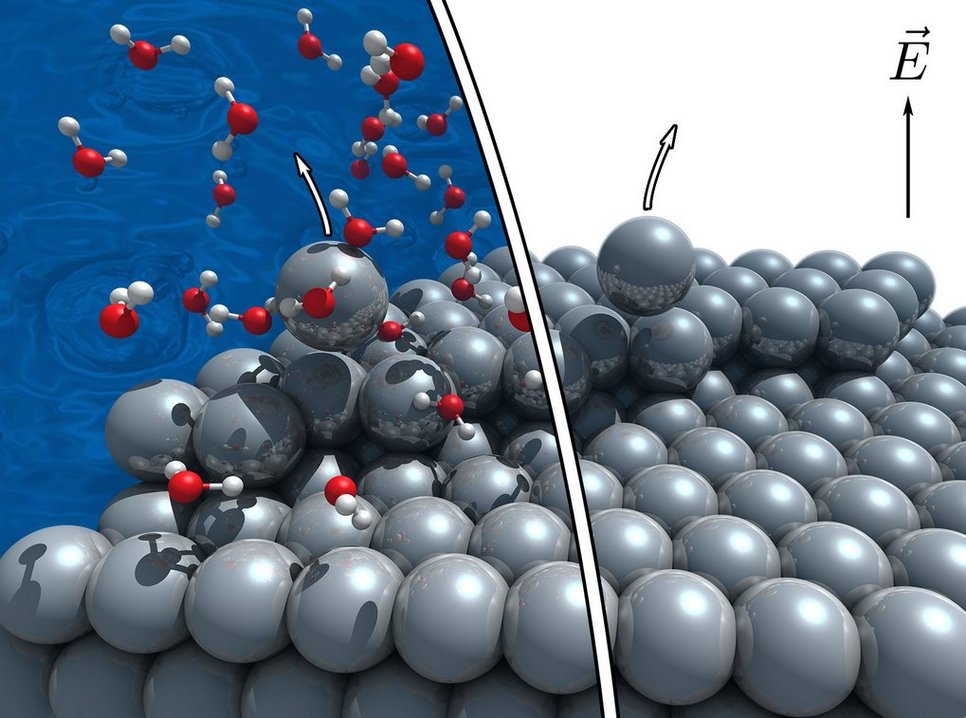Scope

Electric fields significantly alter bond-making and bond-breaking at the atomic scale if they reach 109V/m or more. Yet, at the atomic scale, such gigantic fields do build up across surfaces or interfaces. For instance, most electrochemical processes of practical importance, such as water electrolysis and H2 fuel cells for the upcoming “hydrogen economy” of the 21st century, metal corrosion and electro-catalysis, occur at the interface between a solid (electrode) and a liquid phase (electrolyte) on a nm length scale. Likewise, high electric fields trigger the field evaporation lying at the heart of atom probe tomography, a unique tool for resolving the chemical composition of solids with atomic resolution in 3 dimensions.
A systematic development, improvement and optimization of electrochemical processes as well as of the reconstruction of atom probe tomograms from the raw data requires a fundamental understanding of the underlying elementary processes and their interplay. Unfortunately, our presently available atomic-scale modelling techniques still lack the inclusion of electric field effects in a realistic manner, hampering not only quantitative predictions, but sometimes even the development of a qualitative picture for more realistic constitutive models. In recent years, some progress has been made in various groups to address the problem(s). It is therefore high time to collect and compare the ideas and experiences scattered across the two fields of electrochemistry and field evaporation.
The purpose of the envisioned three-day workshop is to bring together leading scientist from the areas of atom probe tomography, field-ion microscopy and electrochemistry, to discuss possibilities, requirements, and challenges for the effective modelling of electric fields at interfaces. Our established format of one hour long tutorial-style presentations by the invited speakers followed by 20 minutes question-time will allow for ample time to discuss the various approaches, the diverse aspects of an electrolyte and the practicalities of simulation approaches. All participants will have the possibility to present their current research in short talks or during a poster session.
